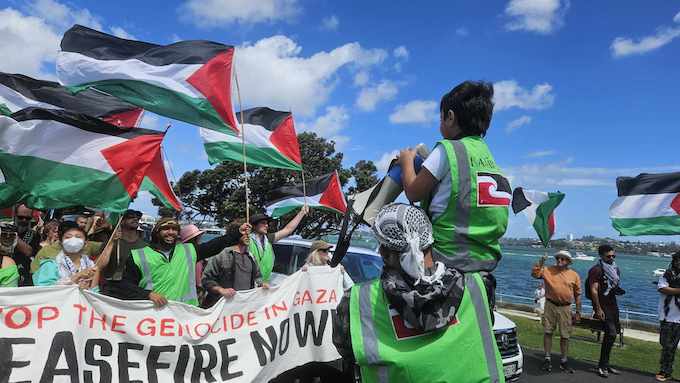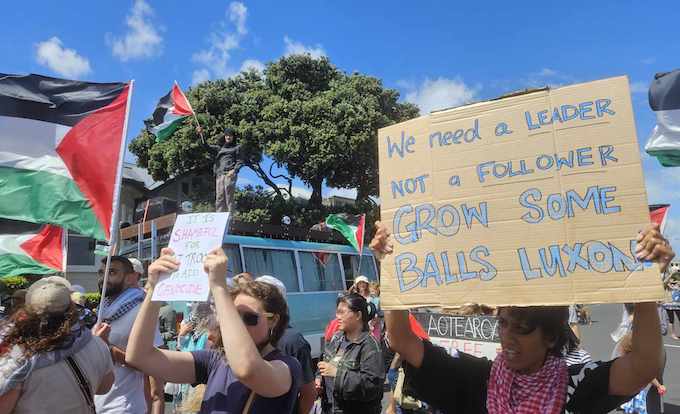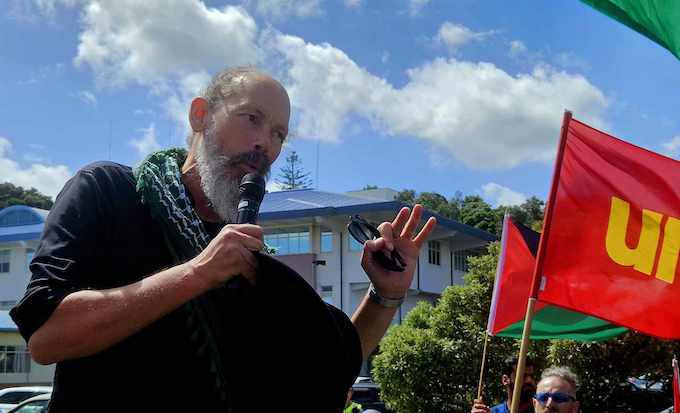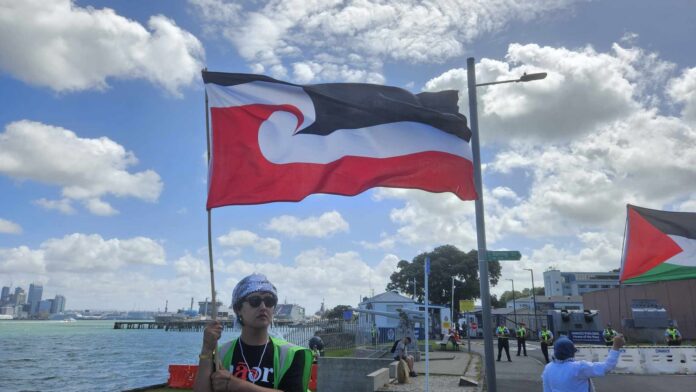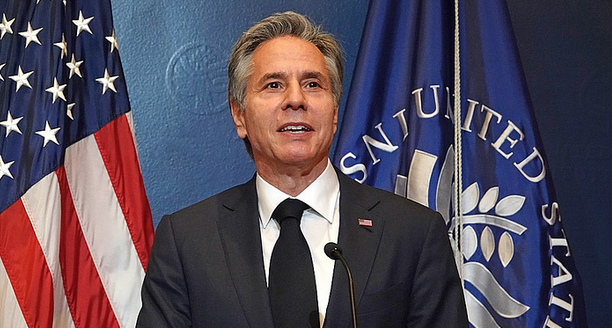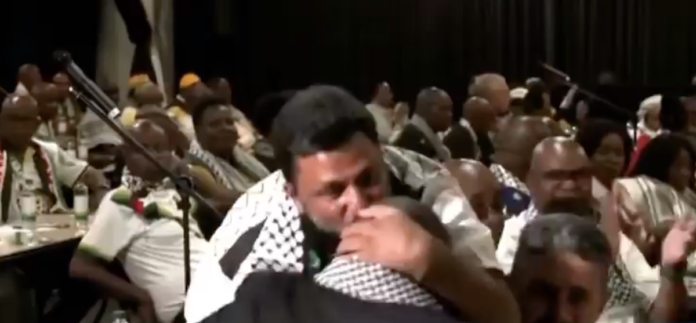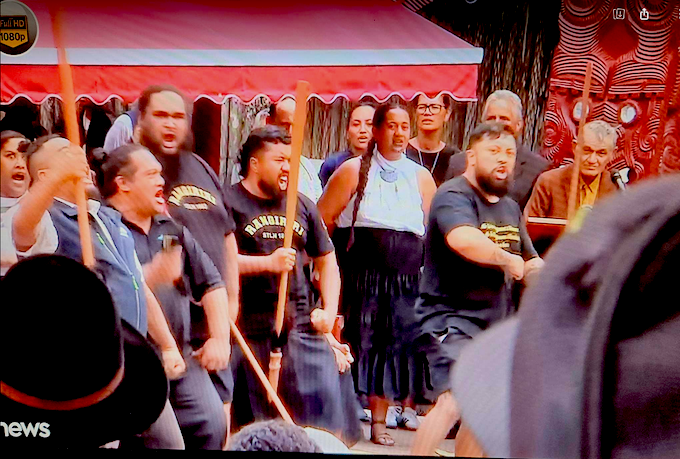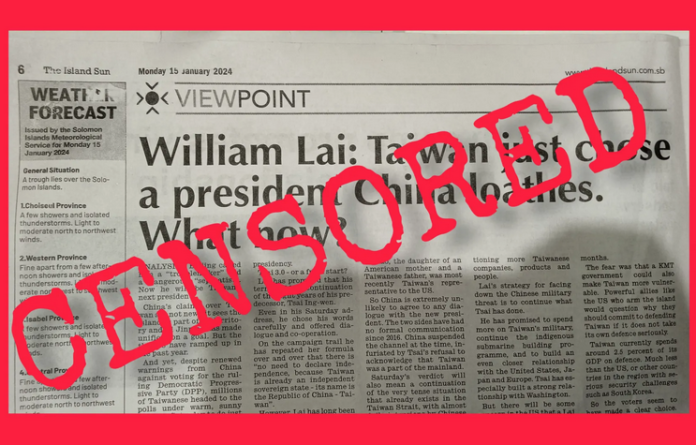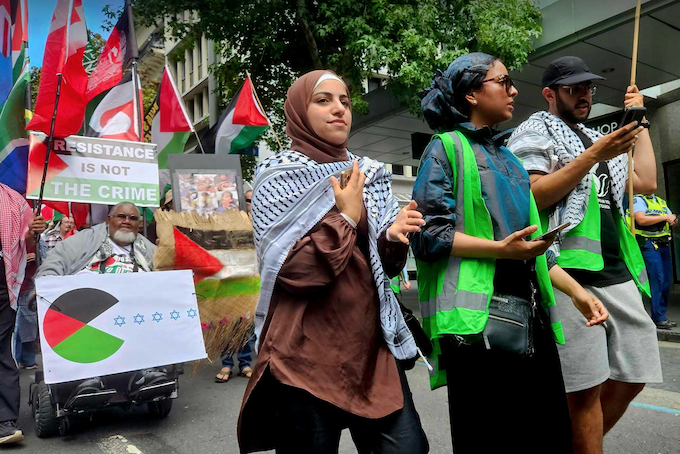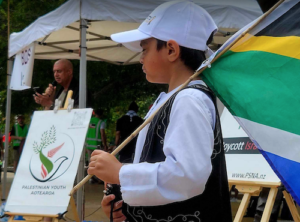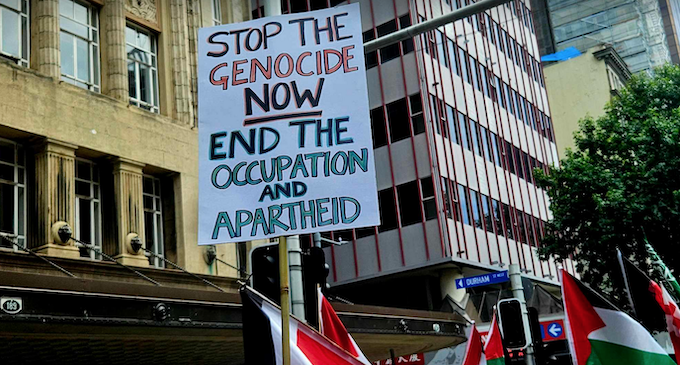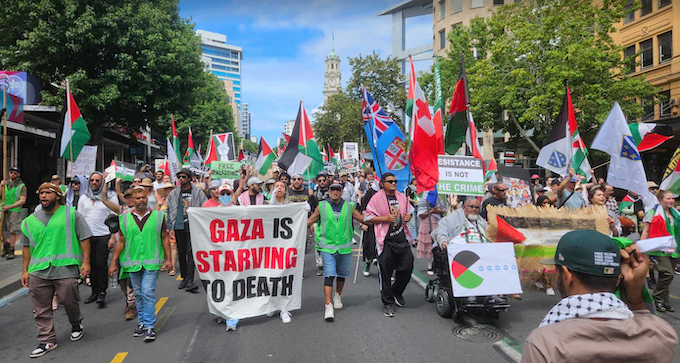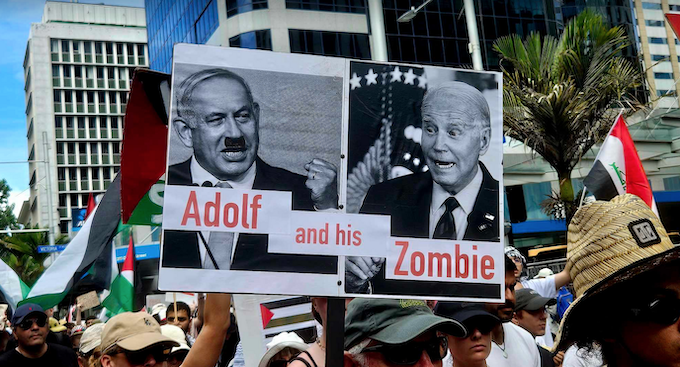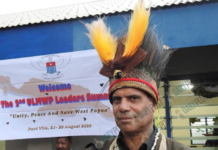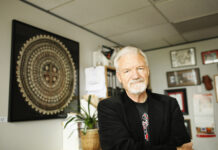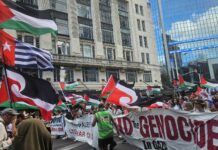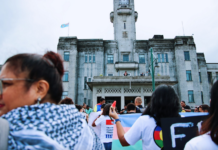By David Robie, editor of Asia Pacific Report
About 200 protesters marched through the heart of Auckland’s tourist suburb of Devonport today to the Royal New Zealand Navy base, accusing the government of backing genocide in the Middle East.
Demanding a “ceasefire now” in Israel’s genocidal war on Gaza that has killed almost 27,000 Palestinians — mostly women and children — so far, the peaceful protesters called on the New Zealand government to scrap its support for the US-led Red Sea maritime security operation against Yemen’s Houthis.
Speakers contrasted New Zealand’s “proud independent foreign policy” and nuclear-free years under former Labour prime ministers Norman Kirk and David Lange with the “gutless” approach of current Prime Minister Christopher Luxon.
- READ MORE: Response to ‘massacres’ by Israel — Group claims deadly attack on US forces
- Amnesty chief calls UNRWA funding cuts ‘heartless’, ‘sickening’
- Palestinian agency condemns funding cuts as ‘ collective punishment’
- Israel’s war on Gaza live: Aid cuts are ‘collective punishment’ – UNRWA
- More countries pause funds for UN Palestinian agency
Among many placards condemning the New Zealand government’s stance, one read: “We need a leader not a follower — grow some balls Luxon”. Others declared “It is shameful for NZ troops to aid genocide”, “Hands off Yemen” and “Blood on your hands”.
Led by the foreign affairs activist group Te Kūaka, Palestine Solidarity Network Aotearoa (PSNA) and Palestinian Youth Aotearoa (PYA), the march was organised in reaction to Luxon’s announcement last week that New Zealand would deploy six NZ Defence Force officers to the Middle East in support of the US-led attacks on Yemen.
“We are appalled our government is dragging New Zealand into a new war in the Middle East instead of supporting diplomatic efforts to achieve a ceasefire in Gaza,” Te Kūaka spokesperson Dr Arama Rata said.
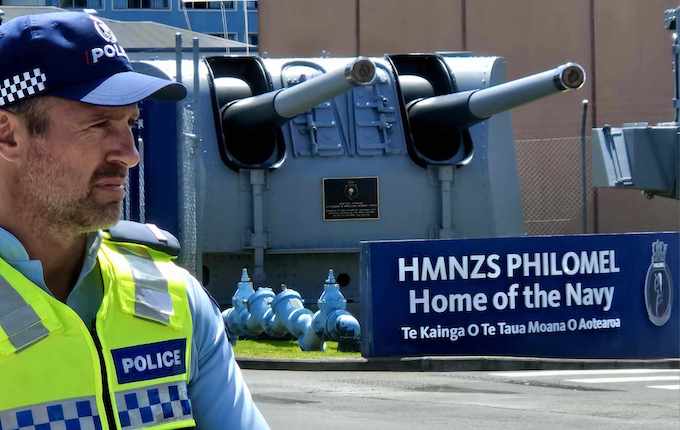
‘Unpopular, dangerous move’
“This is an unpopular, undemocratic, and dangerous move, taken without a parliamentary mandate, or authorisation from the United Nations Security Council, which could further inflame regional tensions.”
PSNA secretary Neil Scott branded the New Zealand stance as preferring “trade over humanity!”

He said that in South Africa’s case before the International Court of Justice (ICJ) the ruling indicated “plausible genocide” by Israel in its war on Gaza and that state was now on trial with an order to comply with six emergency measures and report back to The Hague within one month.
“This is something that has been obvious to all of us for months based on Israel’s actions on the ground in Gaza and Israeli politicians’ stated intent,” Scott said.
“Yet [our] government refuses to call for an immediate humanitarian ceasefire. It refuses to take any action to oppose that genocide.”
Referring to the Houthis (as Ansarallah are known in the West) and their blockade of the Red Sea, Scott said: “Ships and containers heading to Israel — no other ships to be impacted.
“They [Houthis] state that they are carrying out an obligation to oppose genocide under Article 1 of the Genocide Convention. They will end their blockade when Israel ends the genocide.
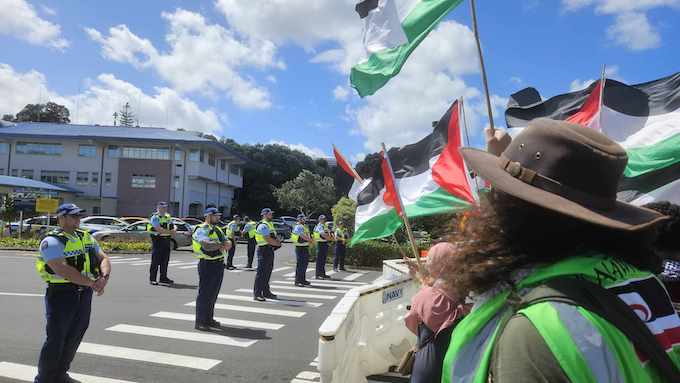
‘Oppose Israeli genocide’
“This is something every country in the world is meant to do. Oppose Israeli genocide — that includes Aotearoa.
“So what does Prime Minister Luxon, Minister of Foreign Affairs [Winston] Peters and Minister of Defence [Judith] Collins do? They decide to send our sailors to the Red Sea to defend ships — getting our Navy to be complicit in defending Israeli genocide.”
His comments were greeted with loud cries of “Shame”.
Scott declared that the protesters were calling on the government to “acknowledge New Zealand’s obligations” under Article 1 of the Genocide Convention; expel the Israeli ambassador until the genocide ends, and to “immediately rescind the order to send our sailors” to join the US forces “defending Israeli genocide”.
The protesters also called on New Zealand’s Defence Force chief Air Marshal Kevin Short and Navy chief Rear Admiral David Proctor to stand by the legal obligations of the Genocide Convention to oppose Israeli genocide.
Pointing to the HMNZS Philomel base as Navy officers and a police guard looked on, Green Party MP Steve Abel referenced New Zealand’s “proud episode 50 years ago” when the late Prime Minister Norman Kirk dispatched the frigate HMNZS Otago (and later the Canterbury) to Moruroa atoll in 1973 to protest against French nuclear tests.
He also highlighted Prime Minister David Lange’s championing of nuclear-free New Zealand and the nuclear-free Pacific Rarotonga Treaty “a decade later” in the 1980s.
Abel called for a return to the “courageous” independent foreign policies that New Zealanders had fought for in the past.
Today’s Devonport naval base protest followed a series of demonstrations and a social gathering in Cornwall Park over the holiday weekend in the wake of the “first step” success against impunity by South Africa’s legal team at The Hague last Friday. Other solidarity protests have taken place at some 17 locations across New Zealand.
